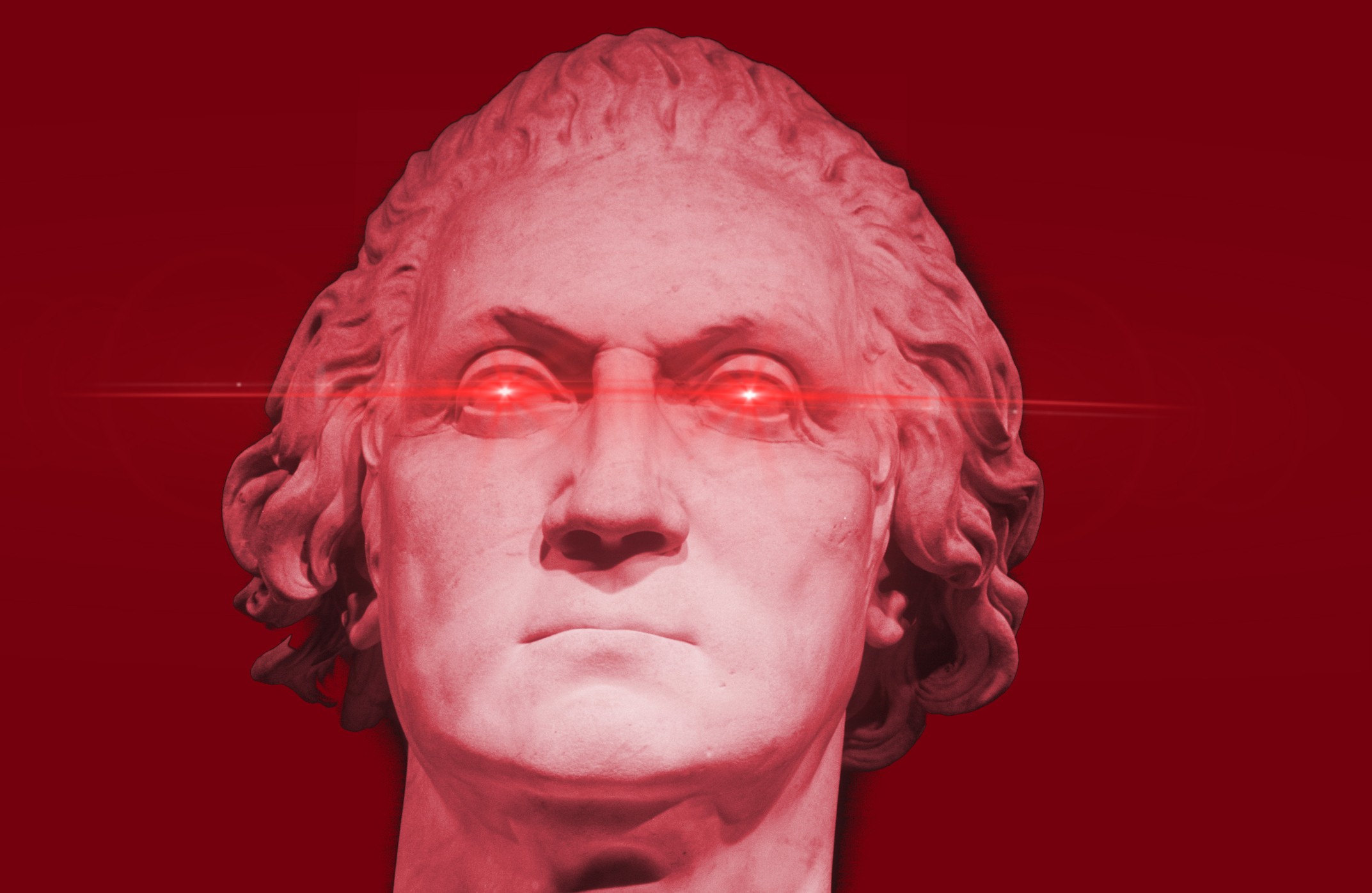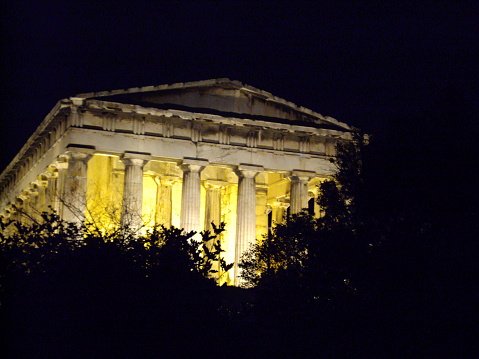America’s founding principles are not merely tried—they are true.
Escaping Liberal Democracy

The Anglo-American alternative to fascism, Marxism, and enlightenment rationalism.
The following is an excerpt from Conservatism: A Rediscovery, by Yoram Hazony.
Liberals often claim that the only alternatives to liberal democracy are Marxism and fascism. But I don’t believe this is true. There are other alternatives to liberal democracy. I want to sketch an alternative viewpoint that I will call conservative democracy. This position is closer to the spirit of the traditional constitution in both America and Britain than the liberal political theories of our day. And it is far better equipped to avert the complete collapse of political order and to maintain the free institutions of these nations.
I take “liberalism” to refer to a political tradition descended from the principal texts of Enlightenment rationalist political philosophers such as Hobbes, Locke, Spinoza, Rousseau, and Kant. By “rationalist,” I mean that this kind of political thought is intended to imitate a mathematical system, which begins with axioms taken to be self-evident and proceeds by supposedly infallible deductions. The axioms on which the liberal system is founded are these:
1. Availability and Sufficiency of Reason. Human individuals are capable of exercising reason, which “teaches all mankind who will but consult it.” By reasoning, they are able to discover universal truths that hold good across all human societies and in every historical time frame.
2. The Free and Equal Individual. Human individuals are by nature in a state of “perfect freedom” and “perfect equality.”
3. Obligation Arises from Choice. Human individuals have no obligations to political institutions until “by their own consent they make themselves members of some political society.”
These fundamental axioms are important not only for understanding a certain stream of early-modern political rationalism. The axioms of the liberal-rationalist system have dominated discourse wherever liberalism has advanced in Europe and America up until our own day. Attempts to alter the foundations of liberalism are well known. Indeed, since the 1990s, many liberal political theorists have sought to distance themselves from the Enlightenment rationalism of earlier liberal thought.
But these trends have made little difference. It is still the free and equal individual, who takes on obligations only after reasoning about them and choosing them, that is the basis for liberal political theory and for liberal public discourse. Of course, one does not have to accept the liberal axiom system as a closed and complete system. I don’t doubt, for example, that many individuals have embraced some or all of these liberal premises while at the same time believing in God, or in the binding character of Scripture, or in the sanctity of the family and the congregation, or in the national state as the best form of political order, and so forth. But the crucial point is that none of these things—God, the Bible, the family, the congregation, and the independent national state—can be derived from liberal premises, nor are any of them promoted by liberal premises.
In other words, there is nothing in the liberal system that requires you, or even encourages you, to also adopt a commitment to God, the Bible, family, congregation, or nation. If one is committed to these things, it is for reasons that are entirely “external” to the liberal political system. The fact that conservative political institutions such as God, Scripture, family, congregation, and the national state derive from sources external to liberalism is not, in principle, fatal. In theory, one can imagine a world in which liberalism coexists with the sources of religion and nationalism—and even that these might be complementary to liberalism, providing it with crucial resources that it itself cannot generate.
This is, implicitly, the strategy of those who say that liberalism is “only a form of government designed to permit a broad sphere of individual freedom.” On this view, liberalism has no aim and no consequences other than to ensure that no one is coerced, for example, into becoming a Christian, or conducting his personal life within the framework of a traditional family. These things, it is said, can be relegated to a separate sphere of privacy and personal liberty—a sphere in which religious tradition, national cohesion, the family, and the congregation will flourish, even as liberal premises are made the official governing doctrine of the state.
This proposal has by now been empirically refuted. Both in Europe and in America, the principles of liberalism have not brought a greater honor for God and Scripture, national cohesion, and the flourishing of the family and the congregation—but the opposite. Everywhere it has gone, the liberal system has brought about the dissolution of these traditional institutions. Nor is the reason for this hard to find. For liberalism is not “only a form of government designed to permit a broad sphere of individual freedom.” In fact, liberalism is not a form of government at all. It is a system of beliefs taken to be axiomatic. In other words, it is a system of dogmas. About what? About the nature of human beings, reason, and the sources of the moral obligations that bind us.
This means that liberal dogmas concern many of the same subjects that are at the heart of biblical political thought. However, liberal dogma offers a very different view from that of, for instance, the Hebrew Bible. Whereas Hebrew Scripture depicts human reason as weak, capable only of local knowledge, and generally unreliable, liberalism depicts human reason as exceedingly powerful, capable of universal knowledge, and accessible to anyone who will but consult it. Similarly, whereas the Bible depicts moral and political obligation as deriving from God and inherited by way of family, national, and religious tradition, liberalism makes no mention of either God or inherited tradition, much less the specific institutions that permit its transmission across generations. And while the Bible teaches that all are created in the image of God, thus imparting a dignity and sanctity to each human being, it says nothing about our being by nature perfectly free and perfectly equal.
Thus there are no grounds for the claim that liberalism is merely a system of “neutral” rules, a “procedural” system. Liberalism is a substantive belief system that provides an alternative foundation for our views concerning the nature of human beings, reason, and the sources of the moral obligations that bind us. This alternative foundation has not coexisted with earlier political tradition, rooted in the Bible, as we were told it would. It has rather cut this earlier tradition to ribbons.
For example, the liberal belief that reason is powerful, universal, and reliable has meant that there is, in principle, no need to consult national and religious tradition, or even to accord such traditions honor and respect. Private individuals can toy with such things if they so choose. But public life, we have been led to suppose, can be conducted perfectly well without them.
Similarly, the belief that political obligation derives only from the consent of the reasoning individual has meant that political and religious tradition has, in principle, no weight at all, or at least no weight that can be admitted as legitimate. Any political right or freedom that appears at a given moment to be the deliverance of public reason will, within a short time, overthrow any and every traditional institution that stands in its way.
Anglo-American Conservatism Revisited
But is there an alternative? Many of our most gifted writers and intellectuals are constantly trying to convince us that we have no choice but to be liberals. It is either that or Marxism and fascism. And since these alternatives are appalling—an assertion with which I myself concur—there is, by process of elimination, no choice but to be a liberal.
Often I cannot tell whether this claim is simply the product of ignorance, or whether it is intended, by some, to be deliberately misleading. Whatever the case may be, this argument insists that there is no choice but to select one of three anti-religious, anti-traditionalist doctrines of the 20th century, and that the only course open to us is to choose the least terrible of the three.
What is obviously suppressed by the constant repetition of this argument is the fact that there were—until quite recently—conservative alternatives to liberalism that offered a different way of thinking about public life. In this book, I have discussed a particular conservative political tradition, Anglo-American conservatism. This is a tradition whose classical period begins with John Fortescue and continues with individuals such as Richard Hooker, Sir Edward Coke, John Selden, Edward Hyde (Earl of Clarendon), Sir Matthew Hale, Sir William Blackstone, Josiah Tucker, Edmund Burke, George Washington, John Jay, John Adams, Gouverneur Morris, and Alexander Hamilton.
The Anglo-American conservative tradition can be summarized with reference to five principles:
Principle 1: Historical Empiricism. The authority of government derives from constitutional traditions known, through the long historical experience of a given nation, to offer stability, well-being, and freedom. These traditions are refined through trial and error over centuries, with repairs and improvements being introduced where necessary, while seeking to maintain the integrity of the inherited national edifice as a whole. Such historical empiricism entails a degree of skepticism regarding the divine right of the rulers, the universal rights of man, and all other abstract, universal systems. Written documents express and consolidate the constitutional tradition of the nation, but they neither capture nor define this political tradition in its entirety.
Principle 2: Nationalism. Human beings form national collectives characterized by bonds of mutual loyalty and unique inherited traditions. The diversity of national experiences means that different nations will have different constitutional and religious traditions. The Anglo-American tradition is rooted in the ideal of a free and just national state, pursuing the good of the nation without foreign interference, whose origin is in the Hebrew Bible. This includes a conception of the nation as arising out of diverse tribes, its unity anchored in a common traditional language, law, and religion.
Principle 3: Religion. The state upholds and honors God and the Bible, the congregation and the family, and the religious practices common to the nation. These are essential to the national heritage and indispensable for justice and public morals. At the same time, the state offers toleration to religious and social views that do not endanger the integrity and well-being of the nation as a whole.
Principle 4: Limited Executive Power. The executive powers of government are vested in a strong, unitary chief executive (that is, the king or president) by the traditional laws of the nation, which the chief executive neither determines nor adjudicates. The powers of the chief executive are limited by the representatives of the people, whose advice and consent he must obtain respecting the laws, taxation, and other crucial matters. The representatives of the people may remove a chief executive where his behavior manifestly endangers the integrity and well-being of the nation as a whole.
Principle 5: Individual Freedoms. The security of the individual’s life and property is mandated by God as the basis for a society that is both peaceful and prosperous, and is to be protected against arbitrary actions of the state. The ability of the nation to conduct sound policy depends on freedom of speech and debate. These and other fundamental rights and liberties are guaranteed by law, and may be infringed upon only by due process of law.
These principles serve as a summary of the Anglo-American conservative tradition that was the basis for the restoration of the English constitution in 1688 and the restoration enacted by the American Constitution of 1787. And they have continued to underpin subsequent conservative political tradition in Britain, America, and other nations down to our own time.
The crucial differences between the conservative tradition and liberalism can be understood in the following way:
Liberalism is a political doctrine based on the assumption that reason is everywhere the same and accessible, in principle, to all individuals; and that one need only consult reason to arrive at the one form of government that is everywhere the best, for all mankind. This best form of government has been given the name “liberal democracy”—a term first popularized in central Europe in the 1920s, which attained a dominant position in political discourse in the English-speaking world only in the 1990s.
What is meant by this term is a form of government that borrows certain principles from the earlier Anglo-American conservative tradition, including those limiting executive power and guaranteeing individual freedoms (Principles 4 and 5 above). But liberalism regards these principles as stand-alone entities, detachable from the broader conservative tradition out of which they arose. Liberals thus tend to have few, if any, qualms about discarding the national and religious foundations of traditional Anglo-American government (Principles 2 and 3) as unnecessary, if not simply contrary to universal reason.
In their effort to identify a form of government mandated by universal reason, liberals have thus confused certain historical-empirical principles of Anglo-American conservatism, painstakingly developed and inculcated over centuries (Principle 1), for universal truths that are accessible to all human beings, regardless of historical or cultural circumstances.
This means that, like all rationalists, liberals are engaged in applying local truths, which hold good under certain conditions, to quite different situations and circumstances where they often go badly wrong. For conservatives, these failures—for example, the repeated collapse of liberal constitutions in places such as Mexico, France, Germany, Italy, Nigeria, Russia, and Iraq, among many others—suggest that the principles in question have been overextended, and should be regarded as true only within a narrower range of conditions. Liberals, on the other hand, tend to see such failures as resulting from “poor implementation,” leaving liberal democracy as a universal truth that is untouched by experience and unassailable no matter what actually happens.
In sum, what is now called “liberal democracy” refers not to the traditional Anglo-American constitution but to a rationalist reconstruction of it that has been detached from its historical empiricism, Christian religion, and the Anglo-American nationalist tradition. Far from being a time-tested form of government, this liberal-democratic ideal is something new to both America and Britain, establishing itself as authoritative only in recent decades.
The claim that liberal-democratic regimes of this kind can be maintained for long without the conservative principles they have discarded is a hypothesis that America and other Western nations have tested for the first time in the last 60 years. Those who believed that a favorable outcome of this experiment was assured drew this conclusion not from any prior historical or empirical evidence, for there was none. Rather, their certainty came from the closed liberal-rationalist system that held their minds captive, preventing them from recognizing the other possible outcomes before us.
This experiment has run its course, and we now know that the Enlightenment-liberal hypothesis was false. A political regime founded on Enlightenment liberalism cannot sustain itself for even three generations. Enlightenment liberalism initiates a perpetual revolution that destroys its own foundations in the name of reason, opening the door to Marxism and fascism. Our concern now must be to restore, as much as possible, the Anglo-American political tradition as it existed prior to the hegemony of liberal ideas.
The American Mind presents a range of perspectives. Views are writers’ own and do not necessarily represent those of The Claremont Institute.
The American Mind is a publication of the Claremont Institute, a non-profit 501(c)(3) organization, dedicated to restoring the principles of the American Founding to their rightful, preeminent authority in our national life. Interested in supporting our work? Gifts to the Claremont Institute are tax-deductible.
Reason and revelation are united in our founding philosophy.
Enlightenment rationalism cannot even deliver the goods it promises.
The pitfalls of conservatism without practical reason or natural law.




